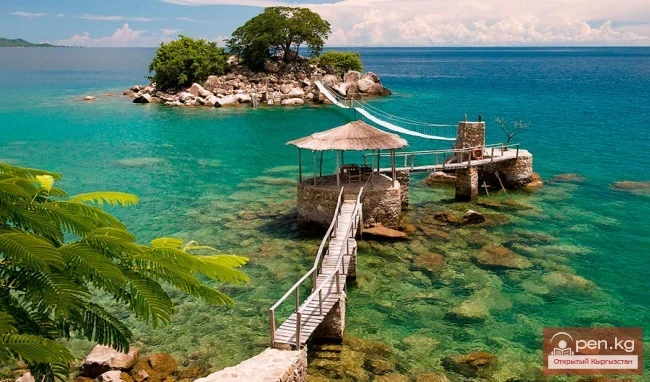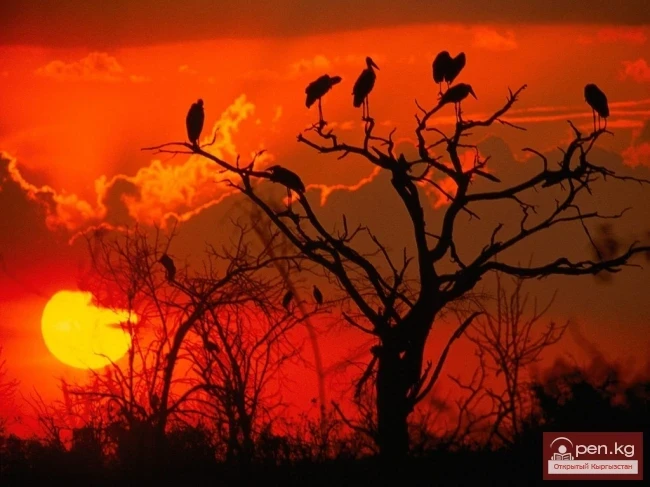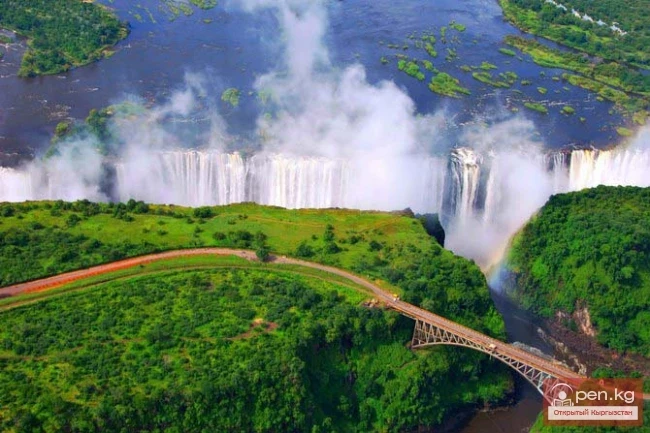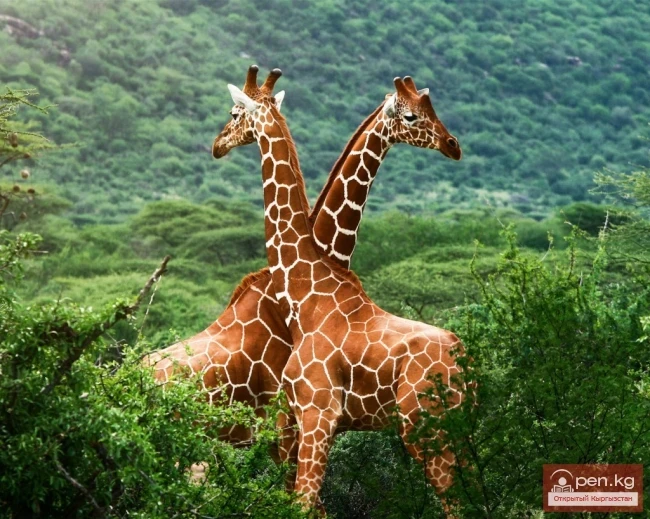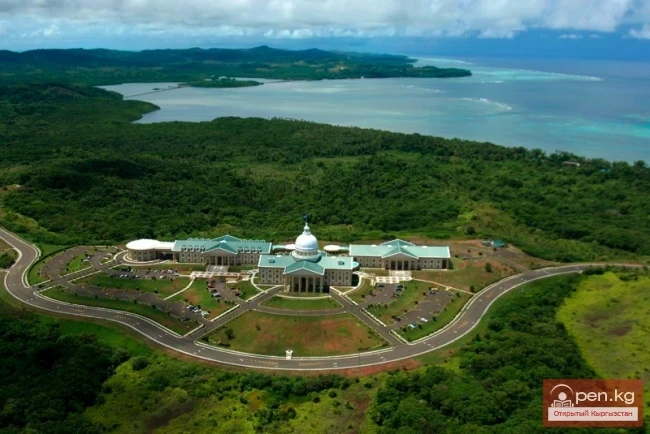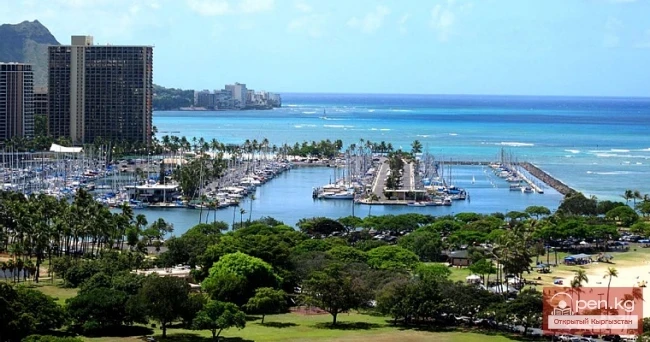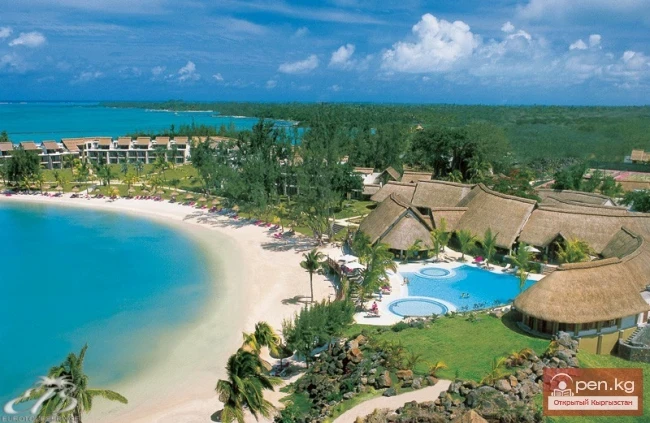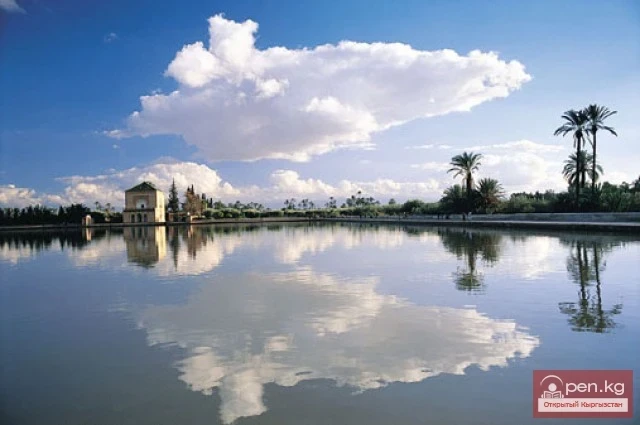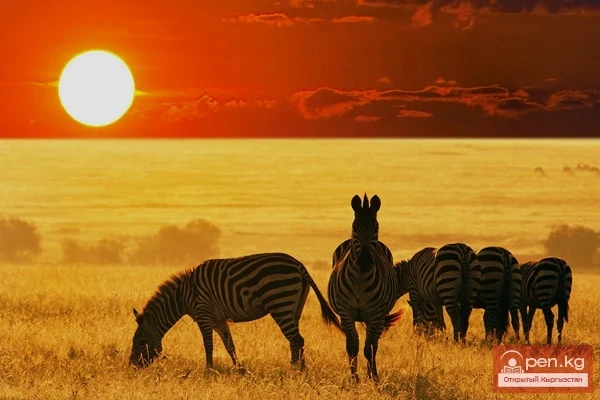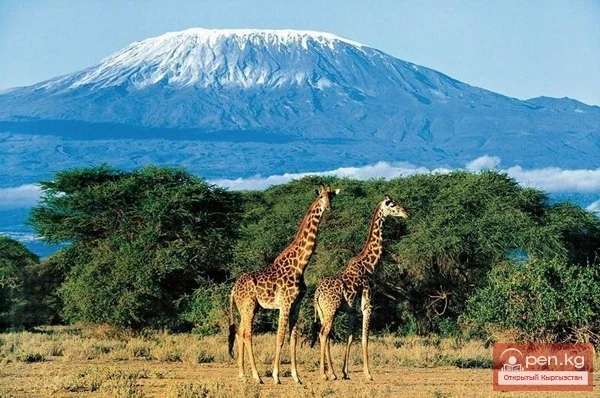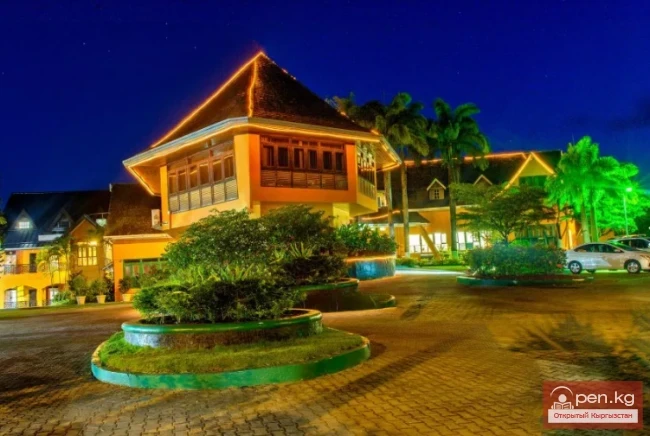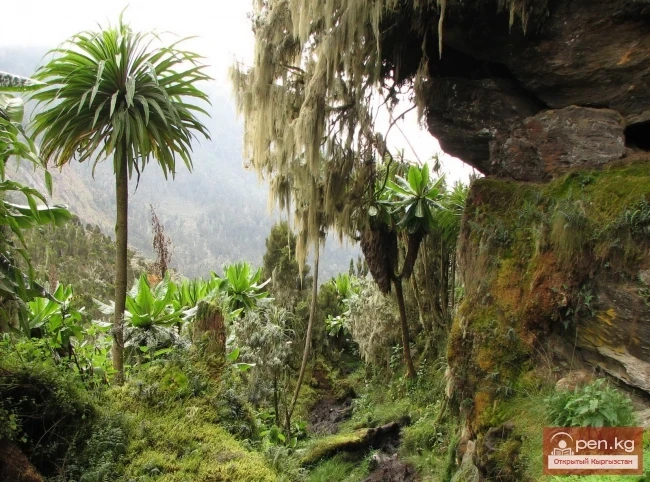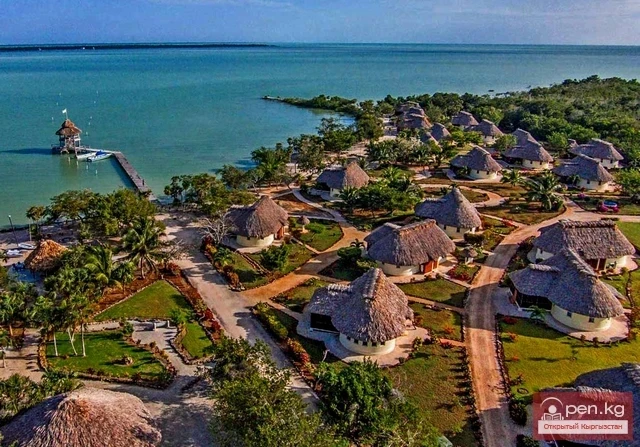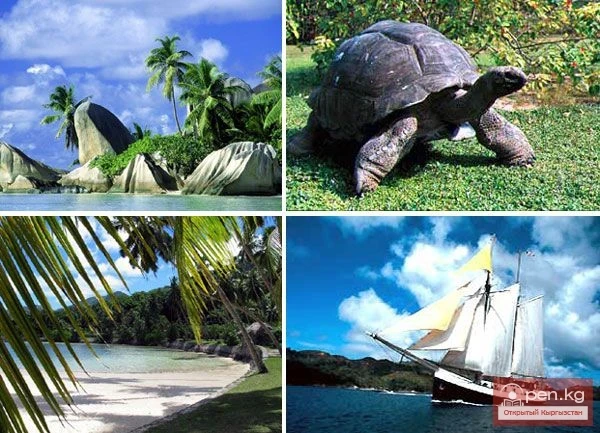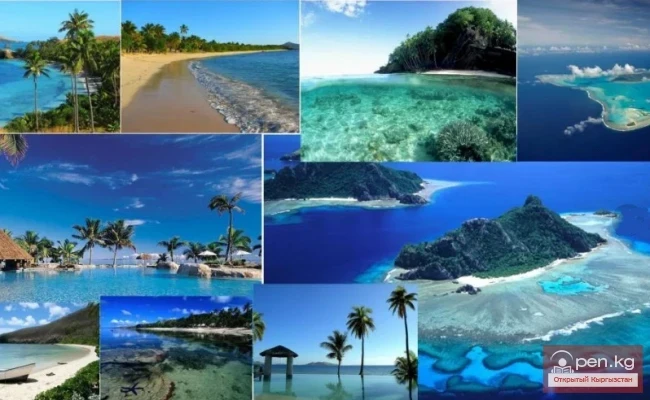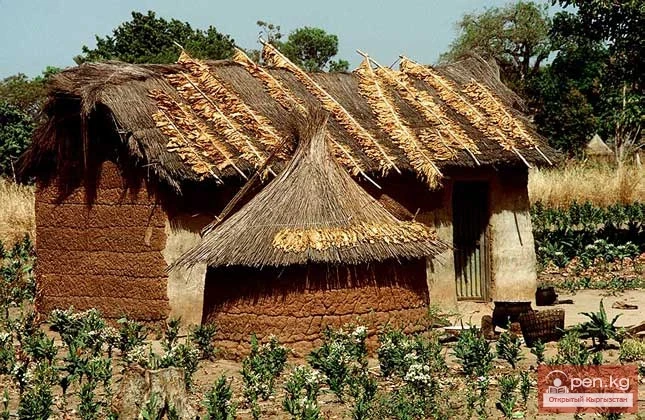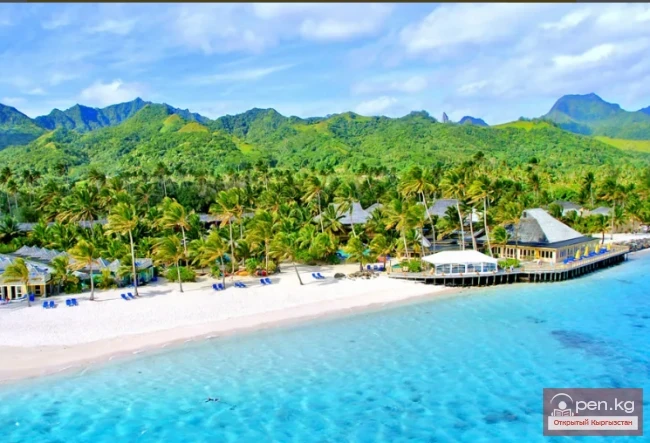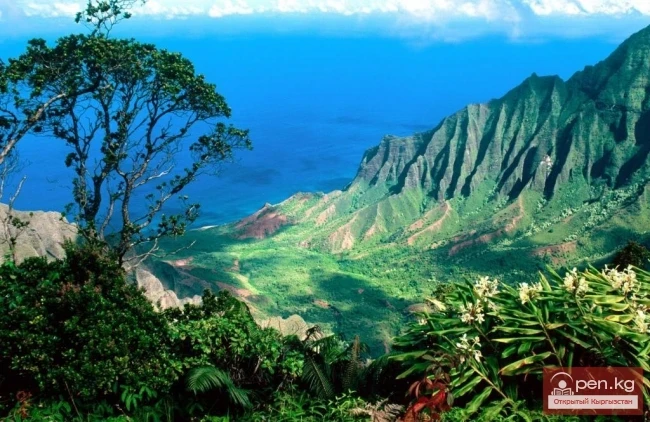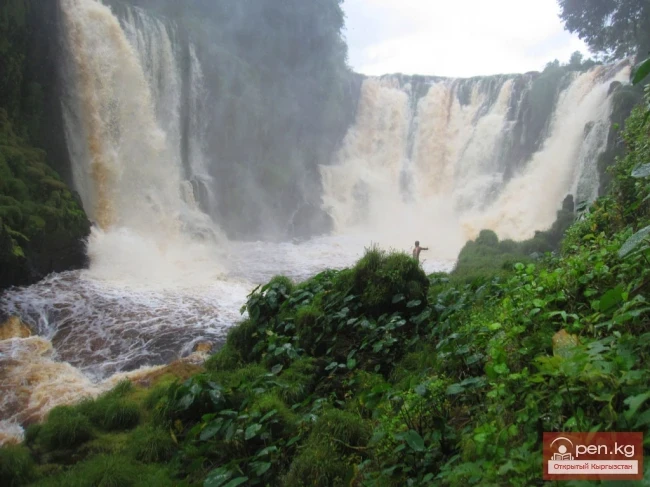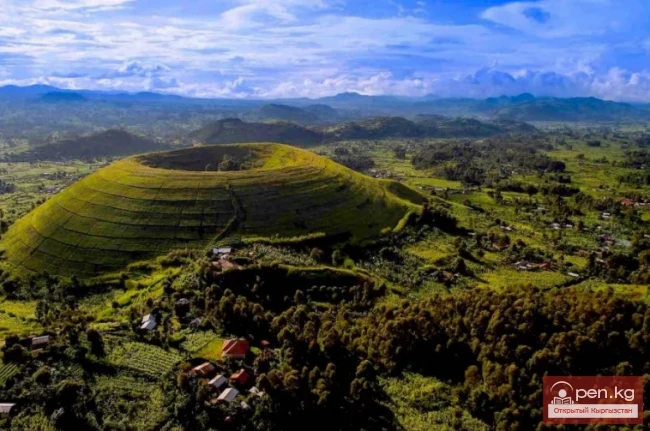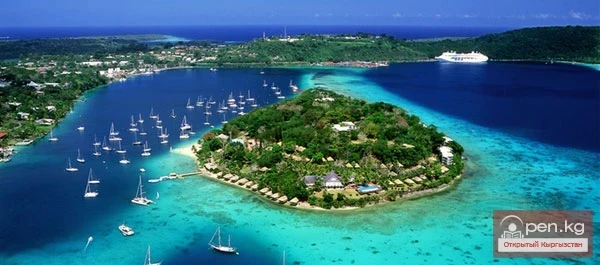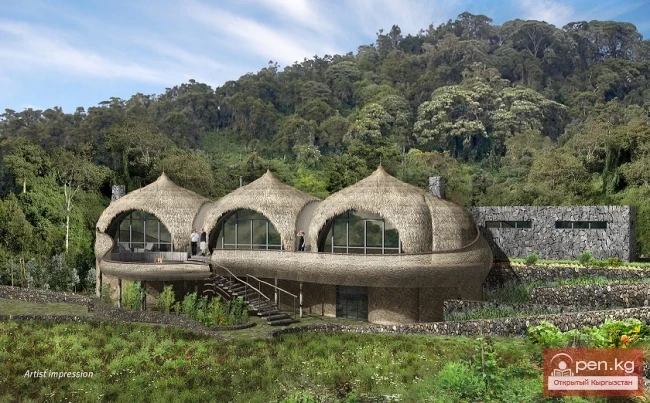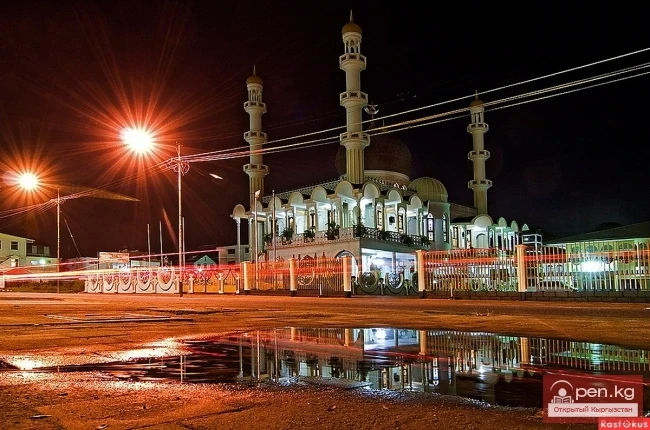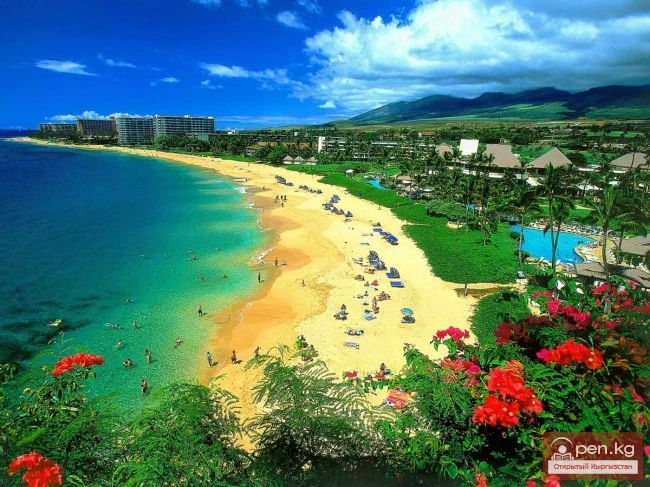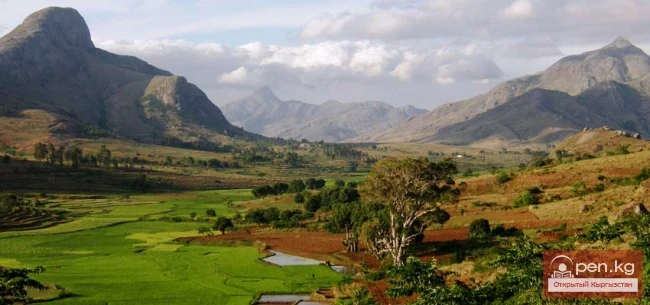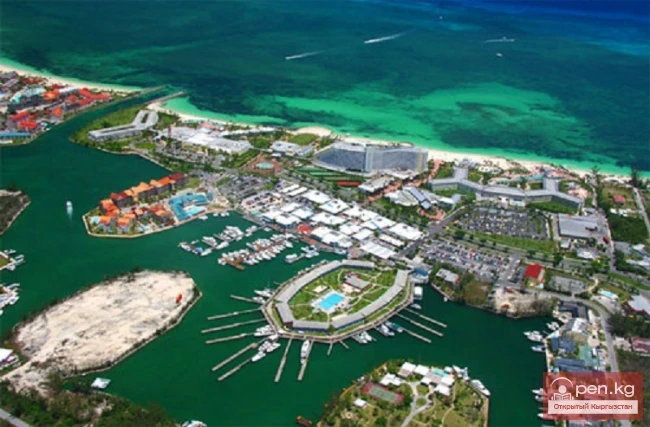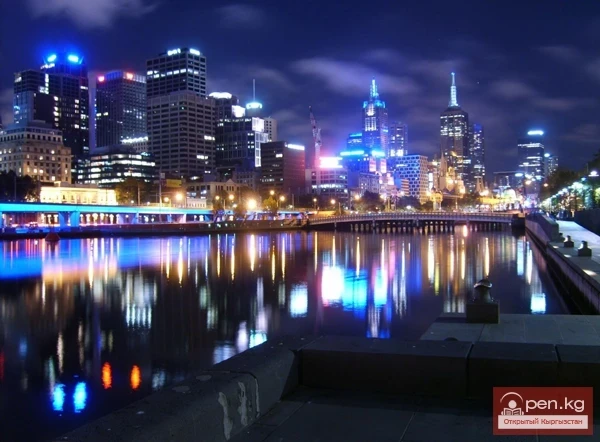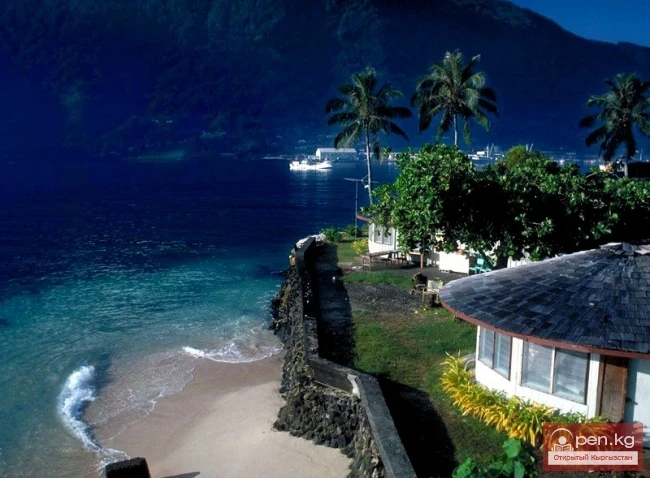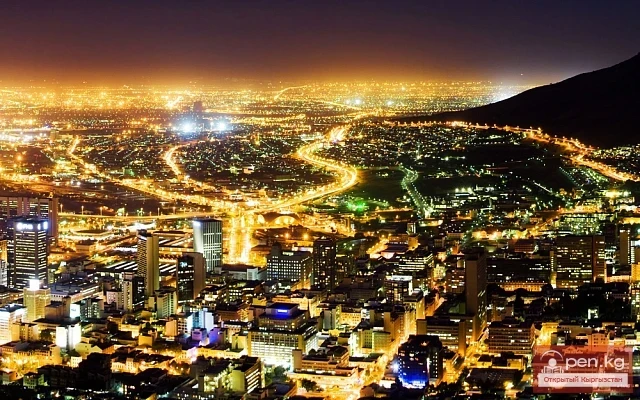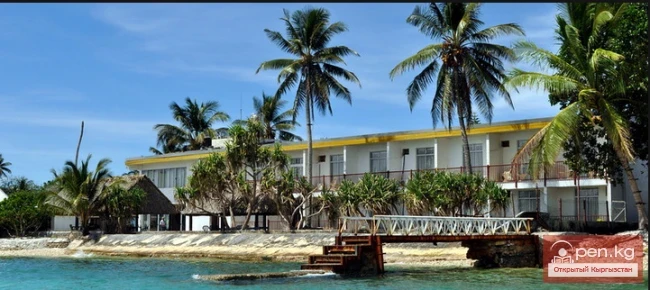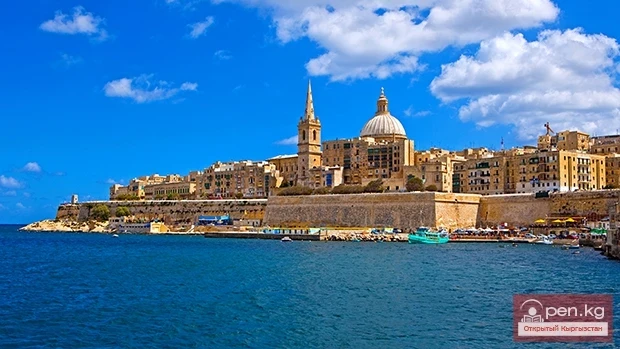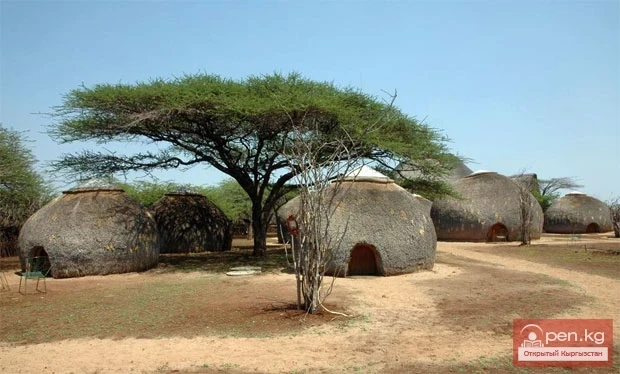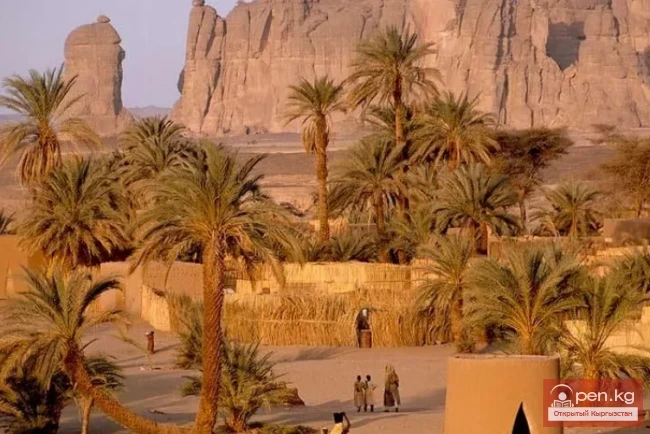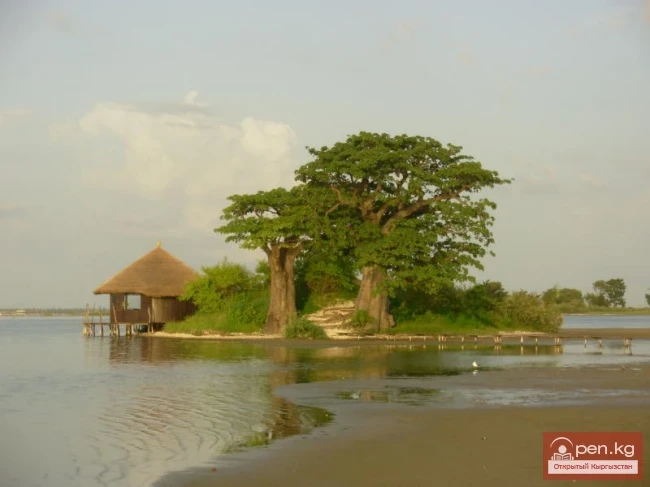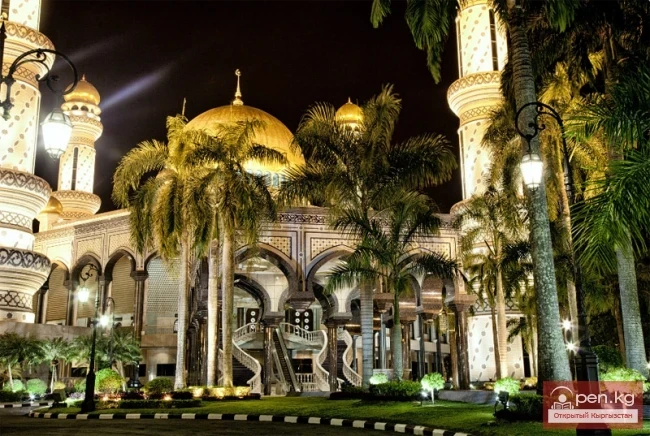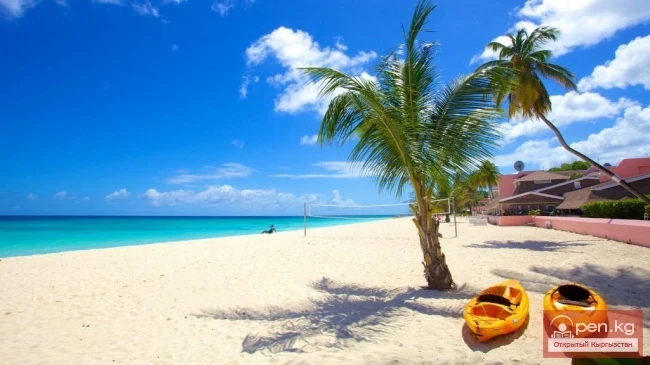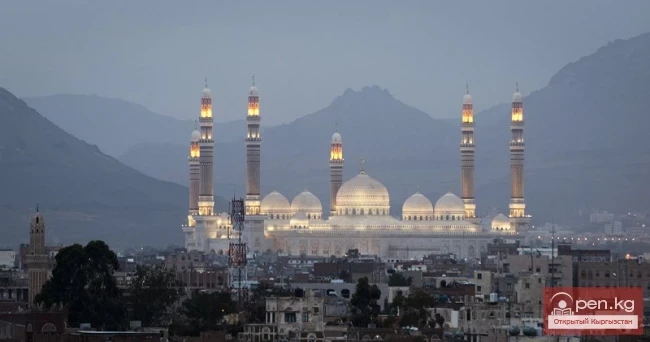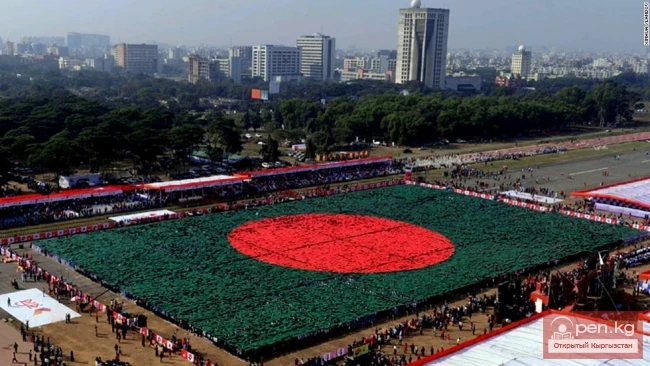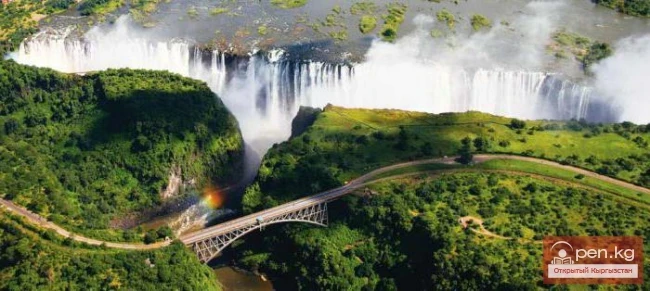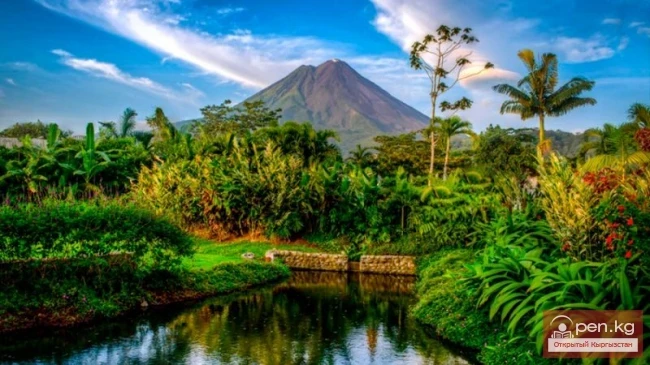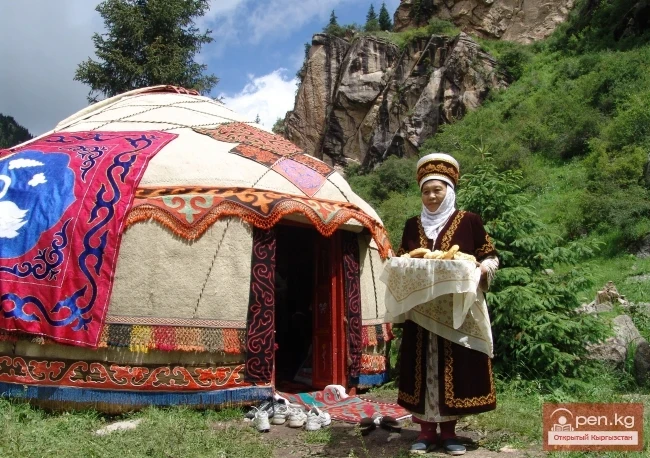MALAWI. Republic of Malawi
A country in Southeast Africa. Area - 118.5 thousand km². Capital - Lilongwe (505 thousand). Administratively, the country is divided into 3 provinces (Northern, Central, and Southern), consisting of districts. Population - 11.1 million (2004); 99.7% are Africans, predominantly from the Bantu language group. The country is also home to Europeans and people from Asia (Indians and Pakistanis). Official languages - English and Chichewa (the language of Malawi). Religion: about 40% of believers practice Christianity (mainly Anglicanism), over 20% - Islam and Hinduism, the rest adhere to local traditional beliefs. The currency is the Malawian kwacha = 100 tambala.
It has diplomatic relations with the Russian Federation (established on November 2, 1993).
National holiday - July 6 - Independence Day (1964).
Since the second half of the 19th century, Europeans began to penetrate into the territory of Malawi. From 1891 - British protectorate Nyasaland, from 1953-63 - part of the Federation of Rhodesia and Nyasaland. Since July 1964, Nyasaland has been an independent state called Malawi, and since 1966 - the Republic of Malawi. After 1964, a dictatorial regime was effectively established by H. K. Banda, who became president in 1966 and was declared "life president" in 1971.
In May 1994, Malawi held its first general parliamentary and presidential elections on a multiparty basis after 30 years of dictatorial rule by H. Banda. The United Democratic Front (UDF, established in 1993) won, ahead of another democratic movement - the Alliance for Democracy (AFORD, established in 1992) and the former ruling Malawi Congress Party (MCP, established in 1959).
The president of the country became UDF leader B. Muluzi. On the day of voting, May 17, 1994, a new interim constitution came into effect. After several amendments in November 1994 and May 1995, it was finally approved by parliament and the president as the Constitution of the Republic of Malawi. The constitution establishes that the supreme legislative body of the country is the parliament, consisting of the National Assembly and the Senate.
However, the final decision on the establishment of the Senate has not yet been made. In the 2004 elections, 187 parliamentarians were elected, including 49 from the UDF, 6 from AFORD, 59 from the MCP, and 38 independent deputies. At the same time, a new president of the country, B. wa Mutharika, was elected, who founded the Democratic Progressive Party (DPP) in 2005.
The executive power is exercised by the president (elected by popular vote for a term of 5 years), who is the head of government.
The trade union association is the Congress of Trade Unions of Malawi.
GDP in 2002 - $1.9 billion, income per capita about $160. GDP growth in 2004 was 3.2%.
The economy of Malawi is primarily based on agriculture. The main agricultural crops are tobacco, maize, sugarcane, and tea. Industry is poorly developed and largely oriented towards agro-processing.
Mineral resources are poorly studied. Coal deposits have been identified in the north and south of Malawi (Livingstonia, reserves of 24 million tons, extraction since 1986; Nkala - 14 million tons; Sumbu - 45 million tons), iron ore (Dzonze, Mindele), bauxite (Milanje), gold, and precious stones.
Malawi mainly exports tobacco, sugar, and tea. Fuel and petroleum products, chemical fertilizers, consumer goods, and food products dominate imports. Major trading partners include South Africa, Zimbabwe, the United Kingdom, Japan, the USA, and Germany.
Malawi's external debt amounts to $3 billion (2003). The literacy rate is 60%.
The internal situation is characterized by social tension, intense political struggle, and maneuvering of parties in parliament.
Malawi has been a member of the UN and the African Union (formerly OAU) since 1964, the Non-Aligned Movement, the Southern African Development Community (SADC), and the Common Market for Eastern and Southern Africa (COMESA), and is part of the Commonwealth led by the United Kingdom.
The priorities of the current government's foreign policy activities include expanding partnerships with traditional Western donor countries, seeking new sources of external aid and investment, and actively developing relations with neighboring countries in the region, primarily with South Africa.
The newspapers "Daily Times," "Afrikaan," and others are published. The Malawi News Agency (MANA) is controlled by the Department of Information; there is a semi-commercial Malawi Broadcasting Corporation.
